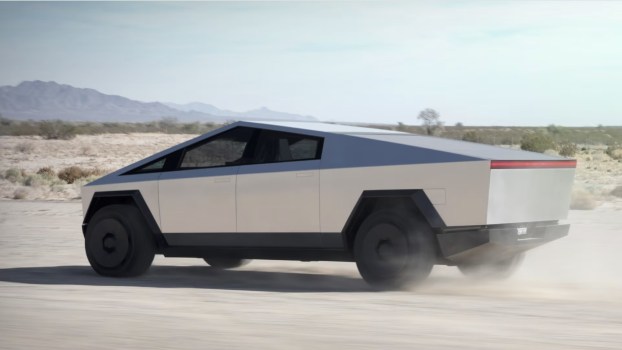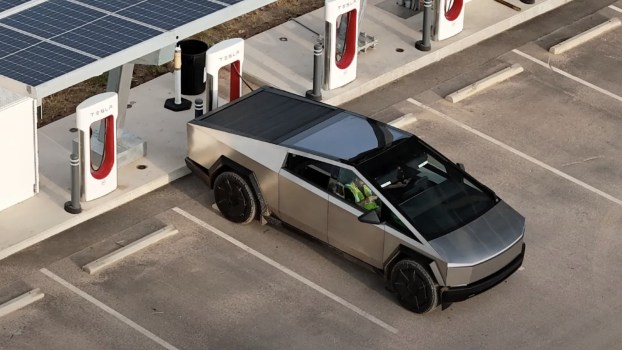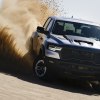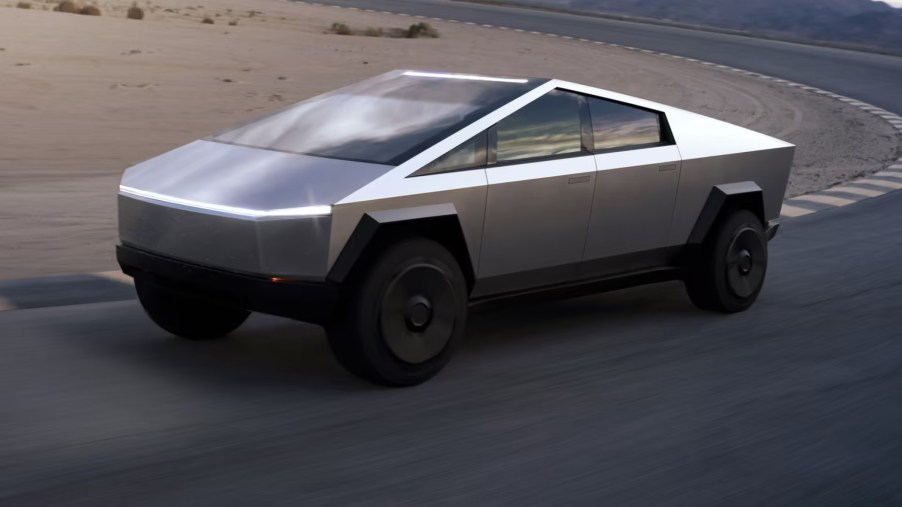
Batteries Could Derail Tesla Cybertruck Production
For the past few weeks, Tesla Cybertruck models have been off to the races. A whole 10 models were delivered during the delivery event and options are appearing in showrooms. But Telsa Cybertruck batteries could slow everything down.
Does the Tesla Cybertruck have a battery problem?
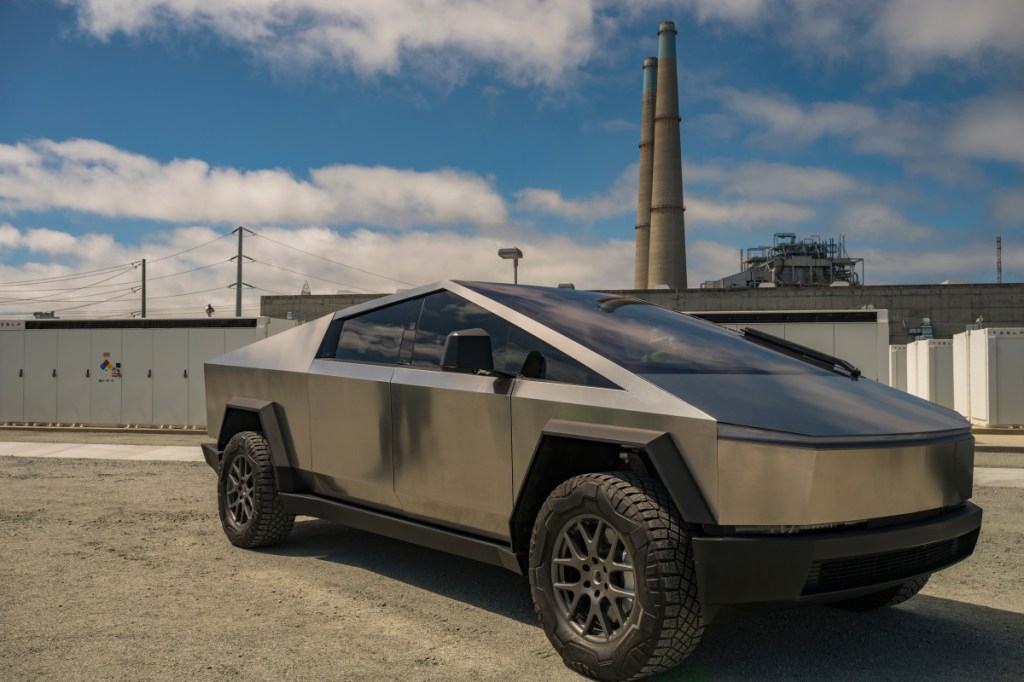
The Tesla Cybertruck doesn’t exactly have a battery problem in the traditional sense. There aren’t reports of the batteries catching on fire, which is a nightmare that the Chevy Bolt EV had to face.
However, the real issue could be related to battery production. The Tesla 4680 battery is being produced at a slow rate. Tesla is producing enough batteries to power about 24,000 Cybertruck models a year.
However, Elon Musk claimed that Cybertruck production would ramp up to at least a quarter million units by 2025.
I’m no math expert, but 24,000 models are a lot fewer than 250,000 trucks. So, the Cybertruck could face massive delays as Tesla struggles to increase battery production.
Tesla has been trying to dry-coat the electrodes instead of using the wet-coating method. Wet-coating takes longer and can be more expensive.
Ideally, if Tesla could master dry-coating at a large scale then it would cut down costs and save time. It would also allow for smaller, greener factories.
Tesla still hasn’t figured out how to dry-coat batteries fast enough to meet production needs. Tesla has been attempting to commercialize the process to pump out large EV batteries on a mass scale.
But Tesla still needs to develop the equipment, tools, tech, and infrastructure required to scale up the process and create a faster rate.
The dry-coating process hasn’t been any faster than wet-coating so far, but the scrap rate of batteries has been reduced.
Tesla plans to expand the battery production in Austin from four to eight lines in 2024. But so far, scaling up the process has resulted in melting batteries and a massive gooey mess.
Also, some battery flaws have been hidden until a few months of vehicle use. This means that Tesla might not be able to tell which dry-coat battery cells are good or bad.
So the pressure is on to deliver enough batteries to ramp up production as currently planned. Tesla doesn’t have much time to solve scaling issues with quality batteries.
Even if Tesla figures out each of the potential issues on deck, cranking out 250,000 models per year will still leave plenty of people waiting for their orders.
Allegedly, the truck has over a million preorders. Unless you pay hefty premiums to get your Cybertruck first, you might be waiting for years.
